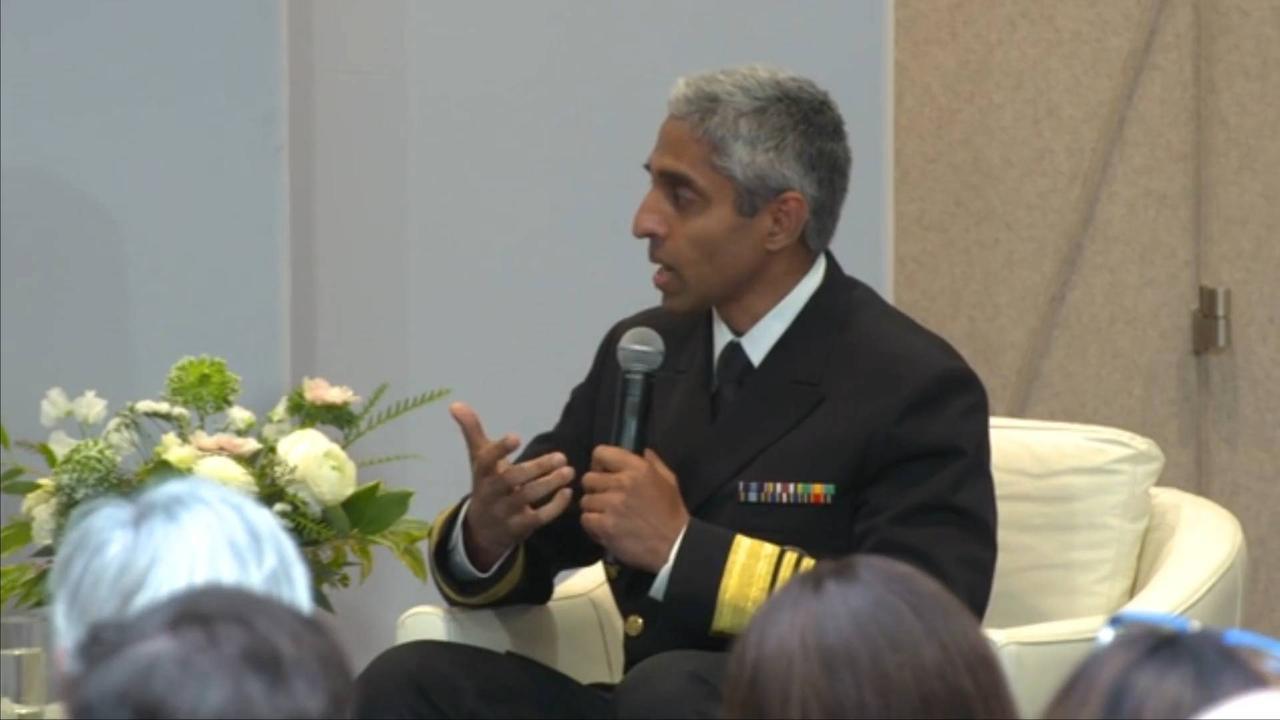Surgeon General Wants Social Media to Include Warning of Mental Health Risks

Surgeon General Wants Social Media to Include Warning of Mental Health Risks
Surgeon General Wants, Social Media to Include , Warning of Mental Health Risks.
On June 17, Surgeon General Vivek Murthy called on Congress to require social media platforms to give users a tobacco-style warning.
.
On June 17, Surgeon General Vivek Murthy called on Congress to require social media platforms to give users a tobacco-style warning.
.
NBC reports that Murthy warned that the mental health crisis among young Americans has become an urgent problem, citing social media as "an important contributor.".
NBC reports that Murthy warned that the mental health crisis among young Americans has become an urgent problem, citing social media as "an important contributor.".
According to Murthy, the warning would include language that alerts users to potential mental health harms associated with using social media.
A surgeon general’s warning label, which requires congressional action, would regularly remind parents and adolescents that social media has not been proved safe, Vivek Murthy, U.S. Surgeon General, via NBC.
Evidence from tobacco labels shows that surgeon general’s warnings can increase awareness and change behavior, Vivek Murthy, U.S. Surgeon General, via NBC.
Murthy reportedly went on to acknowledge that a warning alone has limitations and fails to make social media safe.
In an op-ed published in 'The New York Times,' Murthy linked the amount of time spent using social media with an increased risk for children to develop anxiety and depression.
In an op-ed published in 'The New York Times,' Murthy linked the amount of time spent using social media with an increased risk for children to develop anxiety and depression.
According to the American Psychological Association, teens spend around five hours a day on popular platforms like Instagram, TikTok and YouTube.
.
In his 'NYT' op-ed, Murthy called on all social media platforms to "proactively enhance and contribute to the mental health and well-being of our children.".
One 2019 study found that the number of teens with suicidal thoughts increased 47% between 2008 and 2017, a period which also saw social media use soar.


!['SNL' Writer Pokes Fun at Morgan Wallen's Abrupt Exit From the Show | THR News Video [Video]](https://video.newsserve.net/300/v/20250331/1406730660-SNL-Writer-Pokes-Fun-at-Morgan-Wallen.jpg)
![Why is Trump “Angry” With Putin? | Threatens 25% Tariffs On Russia Over Ukraine Ceasefire Standoff [Video]](https://video.newsserve.net/300/v/20250331/1406668822-Why-is-Trump-“Angry”-With-Putin-Threatens.jpg)
![Trump Calls CNN And MSNBC 'Illegal' In DOJ Speech | Slams Media Bias | Defends Actions Against Press [Video]](https://video.newsserve.net/300/v/20250315/1405106202-Trump-Calls-CNN-And-MSNBC-Illegal-In-DOJ.jpg)


!['Deport Musk’: Anti-Trump Protests Sweep US, Thousands Protest Transgender, Immigration War | VIDEO [Video]](https://video.newsserve.net/300/v/20250206/1400894686-Deport-Musk-Anti-Trump-Protests-Sweep-US.jpg)


![Trump vs Biden Debate, Assange FREED, Gun Violence Crisis, Supreme Court Fail, and Tucker goes OFF [Video]](https://video.newsserve.net/300/v/20240628/1719539288-Trump-vs-Biden-Debate-Assange-FREED-Gun-Violence.jpg)
![Recent Survey Shows Having a Positive Mindset about Aging Can Help People Thrive as They Get Older [Video]](https://video.newsserve.net/300/v/20240628/1379824484-Recent-Survey-Shows-Having-Positive-Mindset-about.jpg)
![Elevating the Human Spirit as We Age [Video]](https://video.newsserve.net/300/v/20240620/1379040180-Elevating-the-Human-Spirit-as-We-Age.jpg)